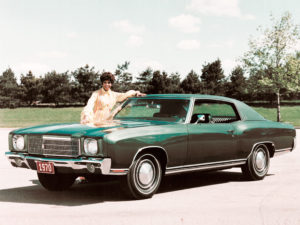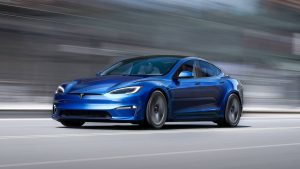No automaker wants to have to recall its vehicles. But, they do so willingly (most of the time) in order to prevent a larger problem from presenting itself. Sometimes the repairs are immediately needed, like when there’s an imminent fire risk, while other times they seem like they can be put off a bit, like when a sticker needs to be replaced on a door jamb. No matter the recall, buyers should act as soon as they receive notice of a recall on their vehicle.
Today, it was announced that approximately 7 million SUVs and trucks would be part of a recall regarding Takata airbag inflators. GM has been fighting the recall for four years.
In a statement, General Motors said:
“The safety and trust of those who drive our vehicles is at the forefront of everything we do at General Motors. Although we believe a recall of these vehicles is not warranted based on the factual and scientific record, NHTSA has directed that we replace the airbag inflators in the vehicles in question. Based on data generated through independent scientific evaluation conducted over several years, we disagree with NHTSA’s position. However, we will abide by NHTSA’s decision and begin taking the necessary steps.”
The recall is part of a larger Takata airbag recall that has affected over 60 million Takata air bag inflators in tens of millions of vehicles in the United States alone.
To date, 18 people have been killed by rupturing Takata inflators in the U.S. The inflators have also caused hundreds of injuries, including lacerations and other serious injuries to occupants’ face, neck, and chest areas.
The Takata airbag recall was initiated in 2015 when the company entered into a Consent Order with the National Highway Traffic Safety Administration (NHTSA) recognizing there was an issue with inflators installed in vehicles across 12 different automakers. A Coordinated Remedy was initiated that prioritized and phased the Takata recalls by vehicles most at risk to least at risk.
The automaker has been fighting the recall since shortly after the defect information report (DIR) was submitted, in May 2016. At that time, GM asked that the NHTSA defer its decision on the inconsequentiality of the inflators used by the company until GM was able to complete its testing and engineering analysis in August 2017. That request was granted due to the extraordinary circumstances of the recall.
GM and the NHTSA went back and forth with testing results and clarifications through 2018. A second DIR was filed by Takata in 2017, which triggered another filing by GM, this time a petition for exemption. The process repeated in 2018 and 2019, with GM looking to exempt all but a few of their models from the recall.
Those vehicles are “GMT900” models that contain “SPI YP” and “PSPI-L YD” inflator variants. The GMT900 is a General Motors-specific platform that underpins a number of light- and heavy-duty pickup trucks and SUVs including: Chevrolet Silverado 1500, GMC Sierra 1500, Chevrolet Silverado 2500/3500, GMC Sierra 2500/3500, Chevrolet Tahoe, Chevrolet Suburban, Chevrolet Avalanche, GMC Yukon, GMC Yukon XL, Cadillac Escalade, Cadillac Escalade ESV, and Cadillac Escalade EXT. The petition involves approximately 5.9 million model year 2007–2014 vehicles.
GM undertook a number of weathering, aging, and safety tests as part of its research into the recall. Those results were then submitted to the NHTSA.
<
According to the filing released this week regarding the petitions, a manufacturer does not have a “statutory obligation to conduct a recall for a defect unless and until it ‘learns the vehicle or equipment contains a defect and decides in good faith that the defect is related to motor vehicle safety,’ or NHTSA orders a recall by making a ‘final decision that a motor vehicle or replacement equipment contains a defect related to motor vehicle safety.'”
It is because of this, that the NHTSA says that, “a manufacturer bears a heavy burden in petitioning NHTSA to determine that a defect related to motor vehicle safety (which necessarily involves an unreasonable risk of an accident, or death or injury in an accident) is nevertheless inconsequential to motor vehicle safety. In accordance with the plain meaning of ‘inconsequential,’ the manufacturer must show that a risk posed by a defect is not important or capable of being ignored.”
GM was up against a steep hill to begin with. Of the three known occasions in which the NHTSA has previously considered petitions contending that a defect is inconsequential to motor vehicle safety, the Agency has granted only one of the petitions. That action occurred nearly three decades ago, in what the Agency refers to as “a vastly different set of circumstances”.
GM submitted thousands of pages of research and context to the NHTSA in support of their case as well as supporting testimony from an engineer who is an expert in airbag construction and safety.
Despite the efforts, the NHTSA determined that GM has not demonstrated that the defect is inconsequential to safety in the GMT900 vehicles. A number of reasons were given for the determination including that GM was unable to identify how the unique construction of the inflators in their vehicles made them less prone to rupture, how solar-insulating glass in the large cabin of the vehicles was decreasing the environmental impact on the inflators, and the small sample size of the inflators tested (just 0.07 percent of the total GMT900 population). GM also argued that replacing the inflators exposed owners to risk due to the possibility of improper dealership installation of the replacement inflator.
In its final decision, the NHTA said,
“The defect here poses an unsafe condition caused by the degradation of an important component of a safety device that is designed to protect vehicle occupants in crashes. Instead of protecting occupants, this propellant degradation can lead to an uncontrolled explosion of the inflator and propel sharp metal fragments toward occupants in a manner that can cause serious injury, including lacerations to the face, neck and chest, and even death. This unsafe condition—hidden in an air bag module—is not discernible even by a diligent vehicle owner, let alone an average owner.
“Moreover, nineteen manufacturers (including GM for other populations of their vehicles) have conducted similar recalls of other non-desiccated PSAN inflators. NHTSA has been offered no persuasive reason to think that without a recall, even if current owners are aware of the defect and instant petition, subsequent owners of vehicles equipped with GMT900 air bag inflators would be made aware of the issue.226 This is not the type of defect for which notice alone enables an owner to avoid the safety risk. A remedy is required.”
Within 30 days of the date of this decision (November 20, 2020), GM shall submit to NHTSA a proposed schedule for the notification of GMT900 vehicle owners and the launch of a remedy required to fulfill those obligations.
To find out if your vehicle is part of a recall, visit https://www.nhtsa.gov/recalls.








